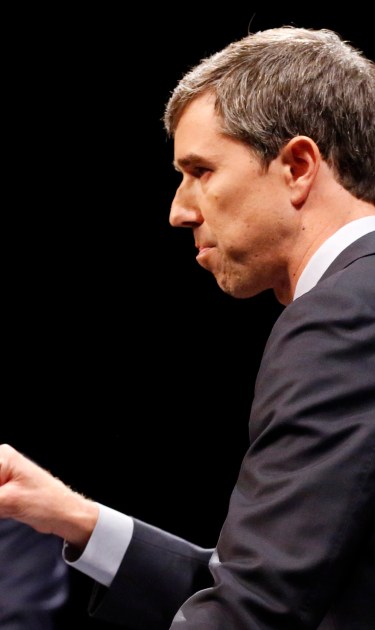If there’s one thing Republicans and Democrats agree on in Texas it’s that US Senator Ted Cruz and challenger Beto O’Rourke need the Latino vote to win the midterm election. In the Lone Star State, a deep red state that hasn’t had Democrats in statewide office since the era of Governor Ann Richards in the early ’90s, Latinos have risen as the minority majority demographically.
Nearly half of Texans under the age of 18 are Latino and 95 percent of them are US citizens, meaning they will be able to vote, and ultimately help determine the political future of the state.
Since President Donald Trump took office in January 2017, opposing political views have given rise to an increased sense of tension and polarization between liberals and conservatives. The current administration’s harsh immigration stance – including its zero-tolerance policy, which resulted in nearly 2,000 children separated from their families earlier this year – have sowed fear and uncertainty in immigrant communities.
And while this issue is certainly important to Latinos, it isn’t the be-all, end-all. Young Latinos, commonly defined as those between ages 18 to 35, care about the same issues their counterparts do. A report released by Fact Tank in September found that this segment of the population believes in core parts of the American dream. “When asked about their children’s future, about 75 percent of Hispanics ages 18 to 35 said that when their children are adults, their standard of living will be much or somewhat better,” the report said.
The results are reflective of a similar report from 2012, which found that Latinos were more personally concerned about education, jobs and the economy, and healthcare than immigration.
Young Latinos traditionally have a low voter turnout. Only 43 percent of Latinos between 18 and 29 years old registered to vote in 2016 and less than a third voted.
Dr. Victoria M. DeFrancesco Soto previously told me that the winning candidate will need to draw moderate voters as well as millennial and Generation Z voters to the polls. In the past, Democratic candidates may have taken the Latino votes for granted, but this campaign season, young Latinos are being courted more heavily, especially by O’Rourke.
The Cook Political Report recently found that Democrats have put four traditionally Republican-held seats in play, including that of Cruz in Texas. As a result, it changed its rating of the race from “Lean Republican” to “Toss Up.” In a hotly contested battle, such as the one between O’Rourke and Cruz, where the candidates are running within single digits of each other, every vote makes a difference.
A recent Ipsos poll gave O’Rourke a slight 2-point edge over Cruz for the first time, only a day after a Quinnipiac University survey showed Cruz in the lead by 9 percentage points.
Here is where Cruz, the conservative incumbent, and O’Rourke, his Democrat opponent, stand on issues that most matter to young Latino voters.




